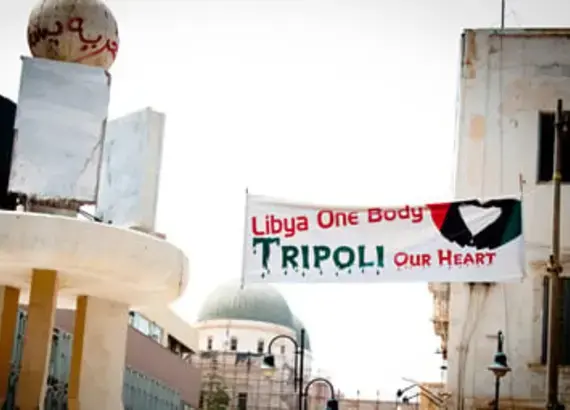
Success Story
Notes from Benghazi: Looking Ahead
As the fight for control of Tripoli continues, NDI staff in Benghazi have been meeting with representatives of the National Transitional Council (NTC) as they plan for the days ahead. NDI Resident Country Director Matyas Eörsi and Senior Advisor David Rolfes report from Benghazi.
On Monday, five NTC representatives were dispatched to Tripoli to coordinate with military commanders, lay the groundwork for the NTC’s relocation and work with local opposition leaders. Early Wednesday morning, NDI was told that at least half of the NTC has left Benghazi for Tripoli and a visit to NTC headquarters seemed to bear out that account as there were largely empty hallways and offices.
While the chaotic scene in Tripoli and the uncertain fate of Muammar Gaddafi dominate the news, the Benghazi-based political leadership is moving forward methodically on a transition plan. An expanded NTC to include additional members from Tripoli and other portions of western Libya will continue to serve a parliamentary role and they will appoint new members to the executive body headed by Mahmoud Jibril. The renewed executive group and NTC will work within the framework of the interim constitution and firm up the timeline for the transition that includes the election of a “National Congress” (a constituent assembly-type body), drafting of a permanent constitution and the election of a government. In a meeting with NDI at NTC headquarters on Tuesday, a composed and soft spoken Council leader Mustafa Abdul Jalil discussed the need for the development of democratic institutions, emphasizing the role that political parties and civil society must begin to play as the fighting wanes and political debate begins in earnest.
Immediate NTC priorities include the prevention of violent reprisals against Gaddafi supporters. NTC is in the process of forming a commission to address the role of Islam in a democratic Libya. Islamic discourse is starting to emerge within the political debates and rallies common in Benghazi, but some NTC members want to inject a more liberal outlook into the political discussion. The NTC remains remarkably united although small differences are beginning to emerge as the end of fighting becomes near. There was tense debate within the NTC over the timing of the release on the interim constitution, with some favoring a longer period of consultation to allow for greater discussion and inclusion. There are differences within the council on how to manage weapons caches and deal with demobilization of volunteer fighters. While a few people in Benghazi with whom NDI has spoken believe that the cessation of conflict could lead to internal power struggles and the fracturing of the NTC, such opinions are in the minority.
Beyond the unfolding events in Tripoli, civil society continues to play an active role in the transition process. A recent national dialogue brought together more than 300 participants to discuss the goals of the revolution. Youth groups and other nascent civic organizations based in the east are hastily preparing to meet with and engage their peers in Tripoli. One young activist said the interim constitution and roadmap are generally acceptable, but lamented that the article providing a timeline for the transition and discussing the drafting of a new constitution and the conduct of elections, is quite complicated. The article attempts to strike a balance between opposing viewpoints by allowing the NTC to oversee a portion of the transition before handing control to an elected body that would oversee the completion of the democratic transition. This activist believes that the public consultation forums held by the NTC in Benghazi are not sufficient, and is convinced that citizens need better information about the NTC’s decisions.
Still others are turning their attention to the resumption of normal life in Benghazi. One university professor who has convened dozens of public meetings over the past few months is advising the NTC to address basic social services, improve health care delivery and get Benghazi schools open again. The mood in Benghazi is optimistic. All remain convinced that Gaddafi’s end will come, whether today or in the coming days. There is a perception that Tripoli will stabilize in the very near future, just as calm quickly returned to Benghazi after the retreat of pro-Gaddafi forces in March.
Related:
Published Aug. 24, 2011



